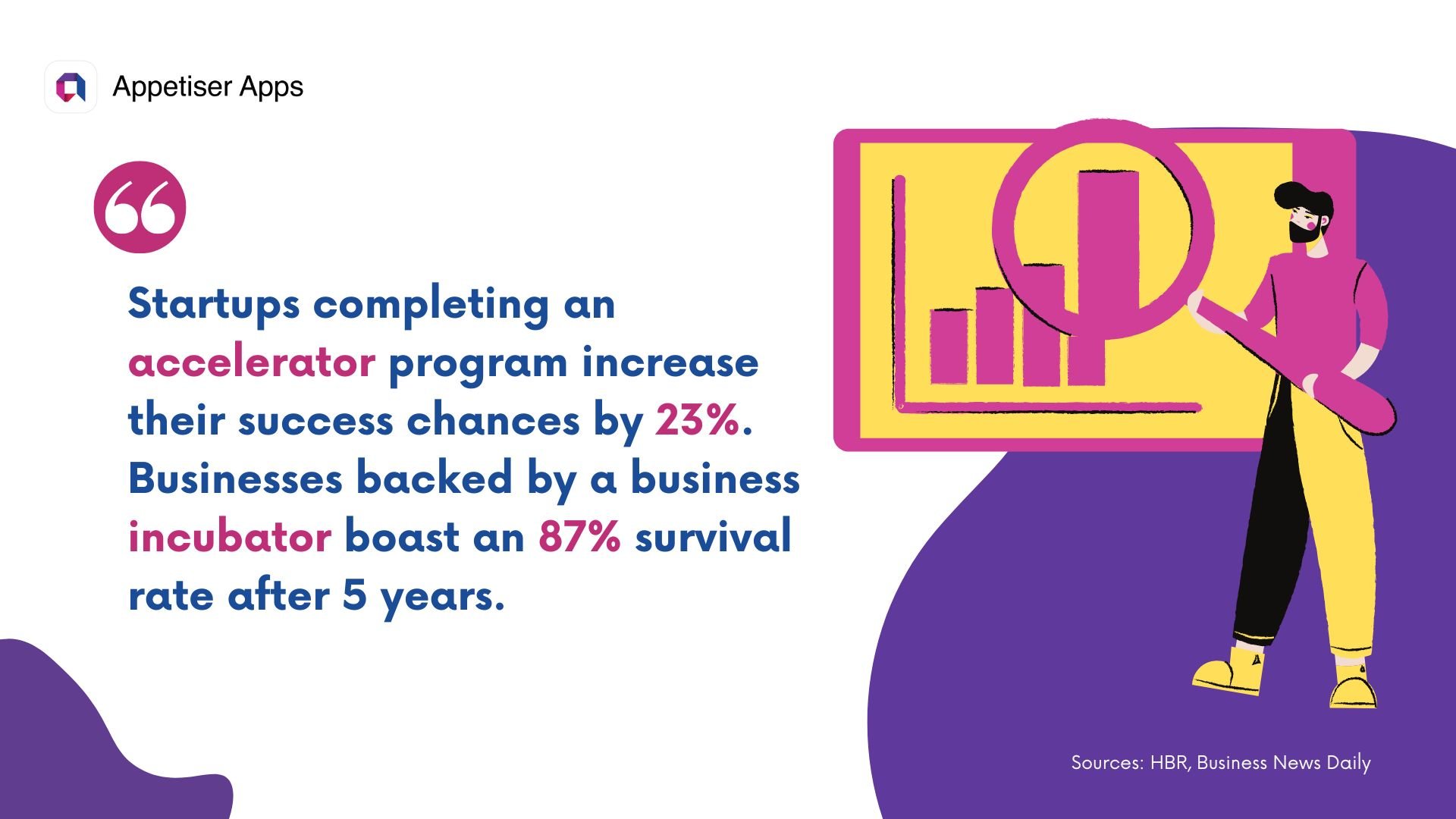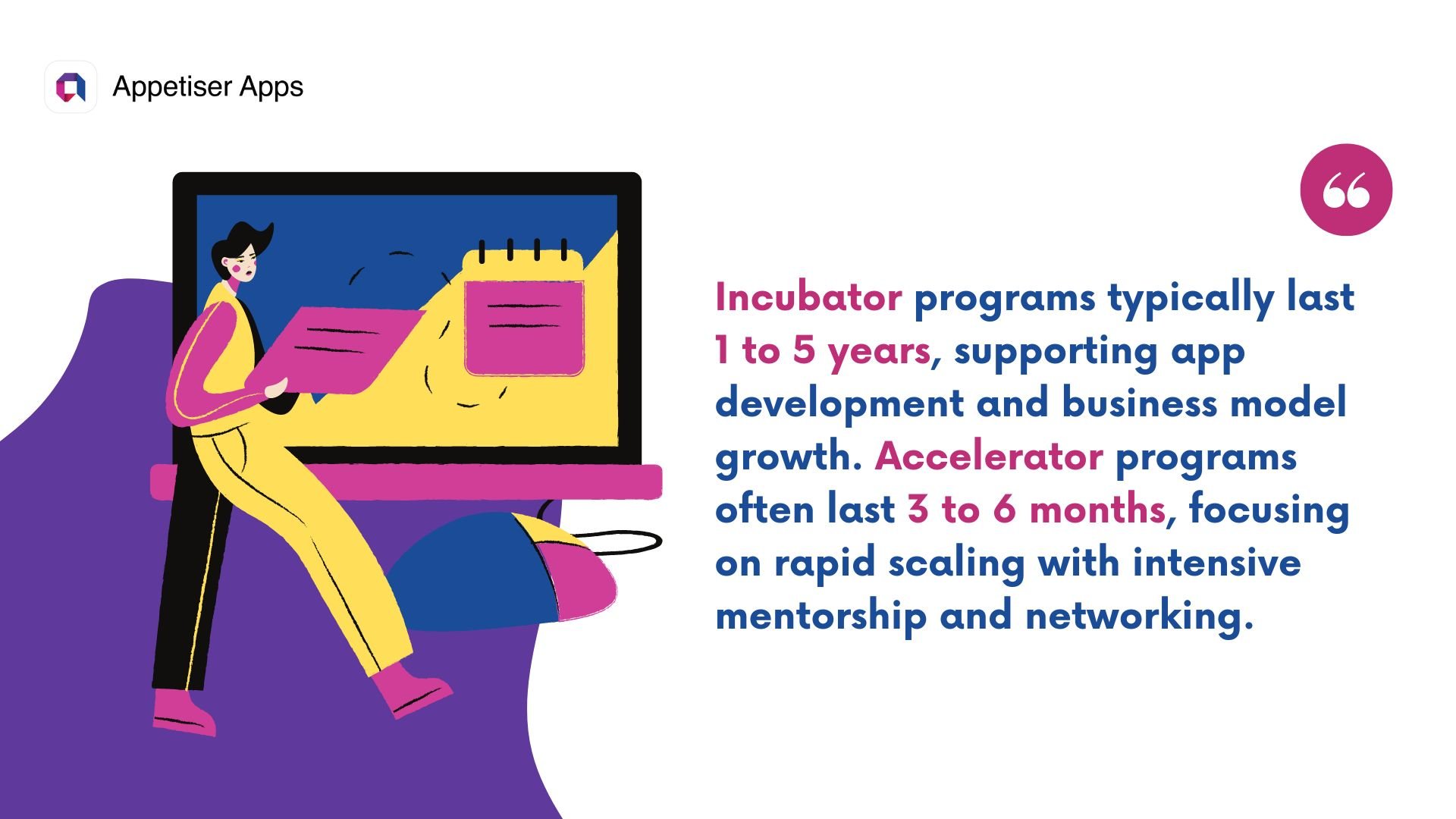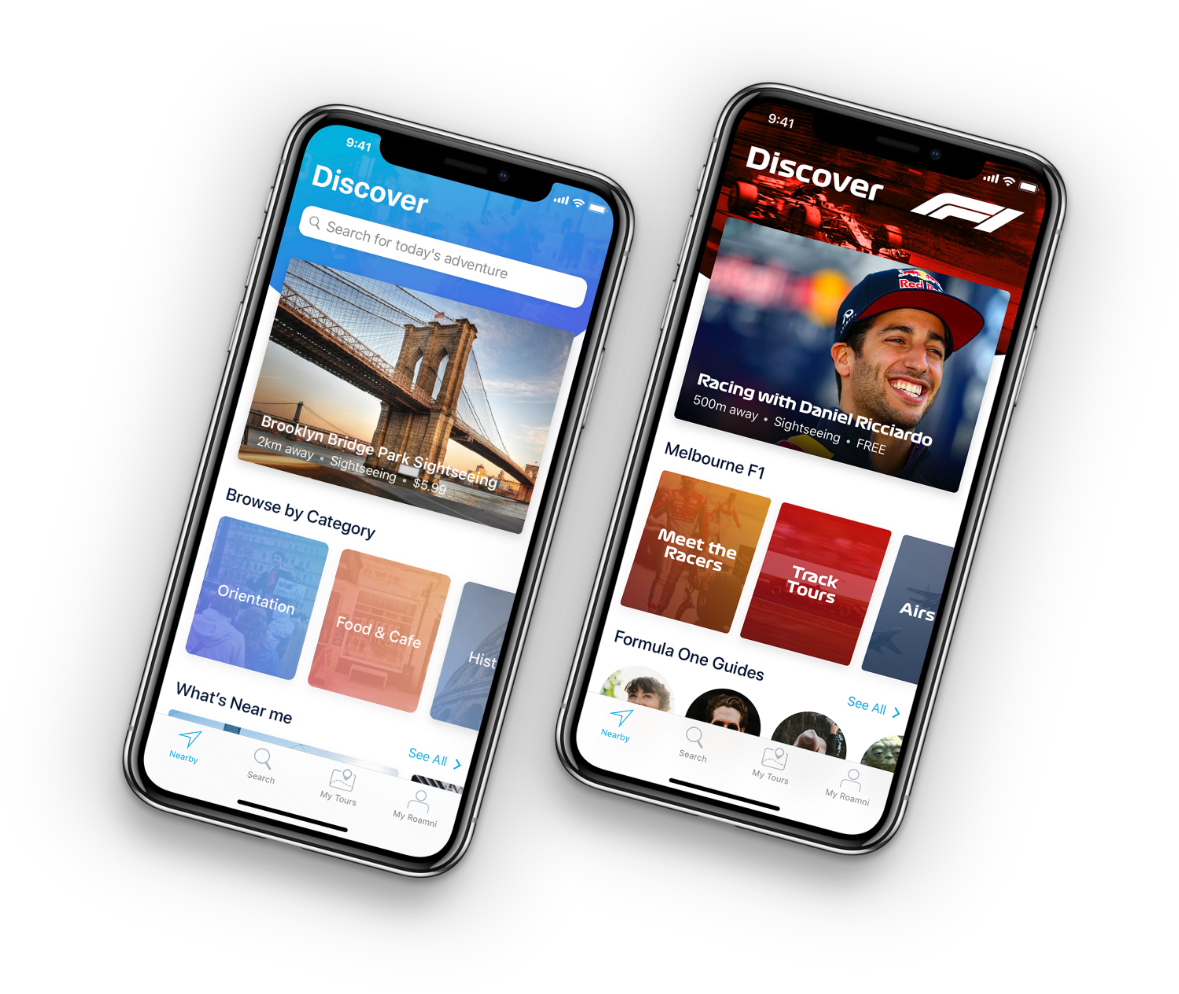Accelerator vs Incubator: Which Is Best for Your Startup Funding and Growth?

If you’re a passionate entrepreneur with a brilliant, game-changing idea, you might have asked questions like: Where do I start? How do I find the right mentors? Where can I get the funding to turn my idea into a reality? How can I quickly scale my business to compete in a crowded market?
These are common concerns for many startups, and the path you choose can make all the difference. This is where accelerators and incubators come into play.
Accelerators and incubators are individuals or organizations that help startups grow.
Studies found that startups that complete an accelerator program have a 23% higher chance of success, which is important because around 90% of startups typically fail. Additionally, businesses that received support from a business incubator have an 87% survival rate after 5 years, compared to just 44% for companies that didn’t use incubator services.

While both accelerators and incubators provide support, resources, and mentorship to early-stage businesses, they operate differently.
Understanding their differences can help you choose the right path for your startup. Whether you’re developing a groundbreaking app or revolutionizing an industry, read on to learn everything you need to know to make an informed decision.
What are startup incubators and accelerators?
Incubators and accelerators are programs designed to help startups succeed, but they do so in different ways.
What is a startup accelerator?
Startup accelerators are for startups that already have a product and are ready to grow quickly. These programs are intense and time-bound, usually lasting a few months. They often offer mentorship, networking opportunities, and access to funding. If you need to rapidly develop your product and secure investment, an accelerator could be your ideal launching pad.
What is a startup incubator?
Startup incubators are like a nurturing environment for new ideas. They help entrepreneurs refine their business models and develop prototypes with long-term support. They provide office space, resources, and mentorship from experienced entrepreneurs. If you need time to experiment and iterate, incubators can be the ideal route to grow your ideas.
5 Key Differences Between Incubator and Accelerator Programs
Here’s a table summarizing the key differences between accelerators and incubators:
| Aspect | Accelerators | Incubators |
|---|---|---|
| Development Stage | Ideal for startups ready to grow quickly with a product | Ideal for early-stage startups developing their ideas |
| Growth Goals | Quick market entry and expansion | Sustainable growth and perfecting the business model |
| Duration | A few months, intense and structured | Flexible, allowing startups to move at their own pace |
| Funding | Gives money in exchange for ownership (equity) | Offers grants and loans without taking ownership |
| Mentorship and Support | Lots of guidance and networking opportunities | Continuous support and a nurturing environment |
1. Development stage
Incubators provide an ideal environment for startups in their early stages, particularly beneficial for tech businesses poised to innovate and refine their offerings.
For example, if you’re a tech startup with an innovative idea but still in the prototype phase, joining an incubator allows you to refine your concept, test various iterations, and gather crucial feedback from mentors and industry experts.
This nurturing environment enables you to validate your market assumptions and solidify your business model before facing the pressures of scaling and market competition.
Accelerators, on the other hand, are tailored for startups that have already developed a minimum viable product (MVP) and are ready to accelerate growth rapidly.
Suppose you’ve launched your tech product successfully and are now seeking to scale operations and enter new markets swiftly. In that case, an accelerator program provides the intense mentorship, networking opportunities, and access to funding necessary to achieve these goals within a condensed timeframe.
2. Growth goals
Accelerators focus primarily on fast growth and preparing your startup to meet the expectations and demands of investors. They push you to achieve significant milestones quickly and get your product to market as soon as possible.
If your tech startup is accepted into a top accelerator like Y Combinator, you’d go through a rigorous process to fine-tune your business strategy, improve how your product fits the market, and perfect your pitch to secure funding. Such intense focus on speed and efficiency can help your startup simplify development processes and jump on available opportunities.
On the other hand, incubators are more focused on helping tech startups establish a strong foundation for long-term success.
If you’re in an incubator program, you might spend time doing thorough market research, developing a business model that can scale up, and refining your product based on feedback. This systematic approach allows your startup to grow steadily, ensuring you’re well-prepared to handle challenges in the market and seize growth opportunities over time.
3. Funding and equity requirements
Incubators often provide non-dilutive funding options, such as grants and loans. As a founder, this means you can secure financial support without giving away equity in your company. You retain full control over your startup while accessing the resources you need to develop your product.
Incubators often provide seed funding to cover initial operational costs and prototype development. This financial flexibility is particularly beneficial for early-stage companies that need time to validate their business model and product market fit.
We’ve witnessed firsthand the benefits of this setup among many of our clients. One of which is Good Empire.

Good Empire is a social video challenge app that promotes direct action across 17 unique missions aligned with the UN Sustainability Goals. With an impressive concept and an Appetiser prototype, the startup has inspired over a thousand investors to contribute, raising over $1 million without requiring further development.
On the other hand, accelerators typically offer seed funding in exchange for equity. This means that the investors take a small ownership stake in your startup. While this setup might seem daunting to some founders, the benefits often outweigh the costs.
The funding provided by accelerators comes with strategic guidance, mentorship, and valuable industry connections. With the right accelerator, the equity exchanged can be well worth the growth and opportunities you can gain. The funding and support can help you scale, reach a broader audience, and achieve other expansion goals quickly.
4. Duration
The typical length of an incubator program ranges from one to five years, providing long-term support as you develop your app and business model. In contrast, accelerator programs are usually shorter, lasting between three to six months, and focus on rapidly scaling startups through intensive mentorship, resources, and networking opportunities.
If your startup is in the early stages, you’ll likely appreciate the length of incubator programs. The focus here is on long-term success rather than immediate growth. You’ll have the time and resources to conduct thorough market research, test different approaches, and refine your offerings.
This careful preparation helps ensure that by the time your app is ready to scale, it has a solid foundation and a well-validated business model. In our experience consulting for numerous startups, this can increase your chances of long-term sustainability.

On the other hand, accelerator programs offer a structured and intense timeline. While challenging, this format can also be incredibly rewarding.
Accelerators provide concentrated mentorship, access to networks of investors, and tailored guidance to help you refine your strategy and accelerate growth. The program’s focused nature encourages rapid iteration, enabling you to adapt quickly to market feedback and capitalize on emerging opportunities.
Such intensive support can significantly enhance your app’s visibility, market readiness, and investor appeal, thus, accelerating your success in a competitive app development market.
5. Mentorship and support
Both accelerators and incubators can provide invaluable networking opportunities and community support. However, they operate differently to meet the needs of startups at different stages of development.
In accelerators, you’ll immerse yourself in a competitive yet collaborative environment alongside other startups.
This setup not only fosters rapid learning and idea exchange but also provides direct access to mentors, investors, and industry leaders who can offer targeted guidance and open doors to potential partnerships or startup funding opportunities. The structured networking events and mentorship sessions are designed to accelerate your app’s market readiness and growth trajectory.
On the other hand, incubators provide a more relaxed and supportive community aimed at nurturing startups over a longer period. Here, you can build relationships organically with peers and mentors, benefiting from their collective wisdom and diverse perspectives.
This community-driven approach allows for deeper engagement, ongoing feedback, and the flexibility to iterate on your app’s concept and business strategy without the immediate pressure of meeting short-term milestones. The emphasis is on sustainable growth and long-term viability, cultivating a supportive ecosystem where startups can thrive through collaborative learning and shared experiences.
Choosing the Right Program for Your Startup
Choosing between an incubator and an accelerator depends on your startup’s unique needs and growth stage. Asking yourself the key questions below can help you decide whether an incubator or accelerator is a better fit for your startup:
| Key considerations | Incubator | Accelerator |
|---|---|---|
| Development stage | Is your startup still in the early stages of developing its idea or concept? | Does your startup have a product ready for market that needs rapid growth and scaling? |
| Funding needs | Are you looking for funding options like grants and loans that don’t require giving away equity? | Do you need funding in exchange for company shares, along with significant support? |
| Expansion goals | Are you aiming for steady growth and refining your business model in a flexible environment? | Are you focused on fast market growth through intensive, structured programs? |
| Networking and support | Are you interested in a community-focused approach that emphasizes deeper engagement, ongoing feedback, and flexibility? | Are you interested in gaining direct access to mentors, investors, and industry leaders who can provide tailored guidance and facilitate potential partnerships or funding opportunities? |
Here are some steps to evaluate the best startup support program for your app:
- Assess your startup’s development stage. The first step is to evaluate the current stage of your startup. Are you still developing your idea, or do you have a product ready for the market?
If your startup is in the early stages, an incubator might be the better fit, providing the time and resources to develop your concept. On the other hand, if you have a product and need to scale quickly, an accelerator can provide the structure and support for rapid growth.
- Evaluate funding and revenue needs. Consider your funding and revenue requirements. Incubators typically offer non-dilutive funding options, such as grants and loans, which can be a lifeline for early-stage startups that need financial support without giving away equity.
Accelerators usually provide seed funding in exchange for equity. This can be beneficial if you need significant capital and are willing to give up a small portion of ownership for the strategic support and industry connections that come with it. Carefully consider your financial needs and the implications of each app funding model.
- Align with expansion goals. Your startup’s growth objectives should also influence your decision. If your goal is rapid market penetration and scaling, an accelerator’s intensive, structured program can provide the necessary resources and mentorship to achieve this quickly.
Meanwhile, if you are focused on sustainable growth and refining your business model, an incubator’s more flexible and supportive environment may be more suitable. Think about your long-term vision and how each type of program aligns with your expansion goals.
- Seek recommendations and advice. Actively connect with mentors, industry experts, and alumni who have firsthand experience with accelerator or incubator programs. You can do this by attending networking events, reaching out on platforms like LinkedIn, or joining startup communities where these individuals participate. Create a business card from Uniqode to make these connections more professional and memorable, which allows you to quickly share your contact details.
By talking directly with them, you’ll gain valuable insights into how these programs work, what challenges they faced, and the outcomes they achieved. This approach allows you to ask targeted questions that can help you understand whether a program aligns with your startup’s needs and goals.
- Evaluate program requirements. When evaluating program requirements, take a thorough approach to understanding the details. Look beyond the surface of equity stakes and funding terms by seeking advice from legal advisors or entrepreneurs who have been through similar negotiations.
Dive into the mentorship aspect by researching the backgrounds of program mentors. Look for mentors with expertise in your industry or specific skills that can benefit your startup. This understanding ensures you can make informed decisions that match your startup’s growth plans, laying a strong groundwork for productive participation in the chosen program.
Pathways to Growth: Incubation vs. Acceleration
Choosing between an accelerator and an incubator is an important decision that can greatly influence the future of your startup. Whether you opt for the intensive pace of an accelerator or the nurturing environment of an incubator depends largely on your current stage of development, funding needs, and growth objectives.
Incubators offer the time and resources to refine your ideas and build a solid foundation. On the other hand, accelerators provide structured programs focused on rapid growth and market entry.
As you weigh these options, consider your long-term vision and the support structure that aligns best with your startup’s goals. Seek advice from experienced mentors and industry peers to gain valuable insights into program dynamics and success rates. Evaluate program requirements meticulously, ensuring they match your financial needs and growth strategy.
At Appetiser, we understand the complexities of launching and scaling an app startup. Our app development and design services come with a holistic approach designed to provide the strategic guidance and support you need to navigate the business of app development.
Schedule a free consultation with us. Let’s collaborate to discover the most effective routes to innovation and impact!
People Also Ask
1. Why do accelerators take equity, but incubators often don’t?
Accelerators invest in startups with the expectation of fast growth. That’s why they want a piece of the pie. Incubators, on the other hand, focus on nurturing ideas and don’t always need a stake to help you grow.
2. Can a startup move from an incubator to an accelerator?
Absolutely. Many startups start in an incubator to refine their idea and later join an accelerator to scale quickly. Think of it as learning the rules before playing the big game.
3. Are accelerators only for tech startups?
Not at all. While tech dominates, accelerators now exist in health, fintech, and even food. If your idea has momentum, there’s probably a program for it.
4. Do incubators and accelerators offer the same resources?
Some overlap exists: mentorship, networks, office space. But accelerators are structured, short, and growth-focused. Incubators are slower, more flexible, and ideal for experimenting.
5. What if my startup doesn’t fit either accelerator or incubator program?
Some startups find freedom outside the usual paths. Startups like Airbnb and Stripe skipped typical incubators early on, leaning on co-working spaces, mentors, and their own experimentation. It can be messy, but there can be unexpected advantages, like the freedom to experiment without someone else’s timetable. Risky? Sure. Rewarding? Definitely.
6. Why do some accelerators charge application fees?
Fees often filter serious applicants. But a high price doesn’t always mean better support. Sometimes it’s just a barrier to entry.
7. Do accelerators guarantee funding?
Not usually. They provide mentorship, connections, and resources, but investment depends on your progress, pitch, and market potential.
8. Can solo founders join accelerators?
Yes, though some programs prefer teams. Solo founders need to show strong leadership and vision to convince the program that they can handle it alone.
9. What are the risks of joining an accelerator?
Equity and time are the main risks. Giving up a share of your startup early might cost more than you realize, and the intense pace isn’t for everyone.

Jane Eslabra has 14+ years of experience producing content across traditional and digital platforms. She channels her strong passion for fostering tech startup growth through knowledge sharing.


